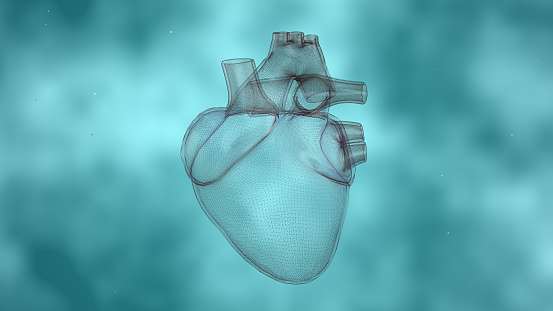
An unvaccinated heart transplant patient in the US is making headlines for being rejected from the list, in part, because of his views on receiving the Covid vaccine.
The irony here is striking. A heart transplant is a very complex medical procedure, only made possible because of the advancement of science.
Organs are given to patients that are more likely to survive and live a long, healthy life. People who have done all they can to receive such a precious thing, another chance.
In an ideal world, we would have thousands of organs to give to every person who needs them. However, as we all know, we don’t live in a perfect world. There are thousands of people who desperately need organ transplants and have had their Covid jabs.
Receiving an organ transplant is a last resort and supply does not meet demand. Patients have to go through an extensive process and meet several criteria to be eligible.
For a transplant to work and not be rejected, patients must be on medication to suppress immunity. What that means is that for unvaccinated people, the chances of survival if Covid is contracted after the transplant are very low. If this particular patient did not take the vaccine, the scenario is similar to sending a soldier to war without ammunition.
I understand there is freedom of choice and patient autonomy in medicine. However, there are also actions and consequences. If a patient does not want antibiotics for a very serious infection, that is their choice. That choice comes with the high possibility that they will die because of that infection.
There are three ethical principles in the allocation of human organs, which are utility, justice and respect for persons. Utility is about maximising the benefit of the organ given. Justice is ensuring organs are distributed fairly and respect for persons is about patient autonomy.
Considering there are more than 106,000 patients on the US national transplant waiting list, when an organ becomes available, it will be given to whoever is likely to need it most but also who is likely to survive the longest with it.
Many criteria have to be fulfilled before recipients go on that waiting list. They have to be of a certain BMI, a non-smoker, not have active cancer, be below a certain age, not abuse drugs or alcohol and show that they will adhere to the post-transplant medication regimen.
Respect and autonomy means giving the patient the options they have and then respecting the choices they make. But choices almost always come with consequences. One cannot refuse chemotherapy for cancer, then expect to stay alive for 100 years. It’s the same principle in this case: if a patient wants a heart transplant, they have to maximise their chances of survival and that includes having the Covid jabs.
Donor hearts do not come by every day and a heart transplant is a big deal. These are not easy decisions to make, but patients cannot pick and choose what criteria they want to fulfil. This case is a tragic waste if the person who is drowning won’t accept the life jacket thrown their way in favour of upholding their beliefs around vaccination.
Dr Elissa Abi-Raad is a junior doctor and committee member of the Doctors’ Association UK.





